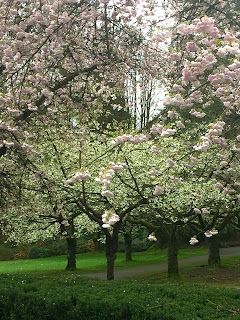
I was walking with the Busó - men in fantastically carved, horned masks, wearing sheep skin cloaks - in the small Hungarian town of Mohács.
Mohács is situated on the Danube across the border from Croatia. The Hungarians were defeated there by the Turks in 1526 at the Battle of Mohács. The Nation was occupied by Ottoman Turks for one hundred and fifty years.
Busójárás - walking with the Busó - is a curious blend of pre-Lenten Carnival; farewell to winter/welcome to Spring; and re-creation of a 16th century legendary battle. It was then that the Mohács townspeople, amidst a fierce storm and dressed in the frightening attire, scared the occupying Ottoman troops away and thus regained their freedom and their town.
Over the years, the confluence of these strands coalesced into today's fantastic Mohács Farshang (Carnival) . In 2009, UNESCO listed it as a World Heritage event.
On the night of Shrove Tuesday (Mardi Gras) - the final day of Carnival - winter is placed inside a coffin and the Busó send it off in flames amidst a large bonfire in the center of town.
The town is liberated, winter is dealt a final blow, spring is welcome and Lent begins.





